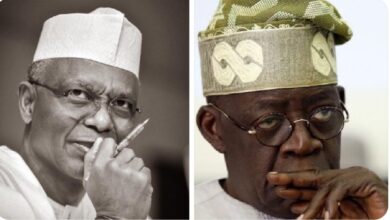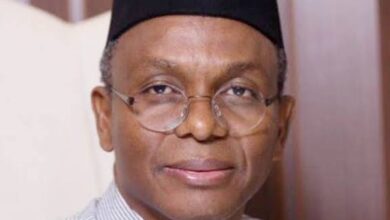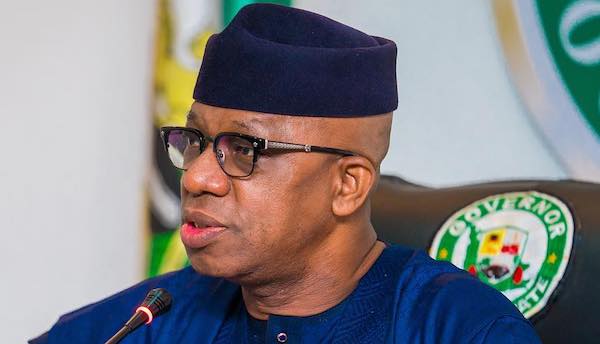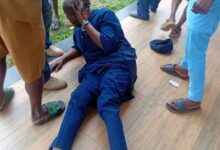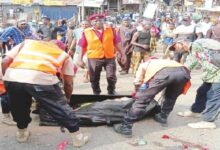Sokoto, Taraba Governors, Emirs attend closing of 12th Usman Dan Fodio Week
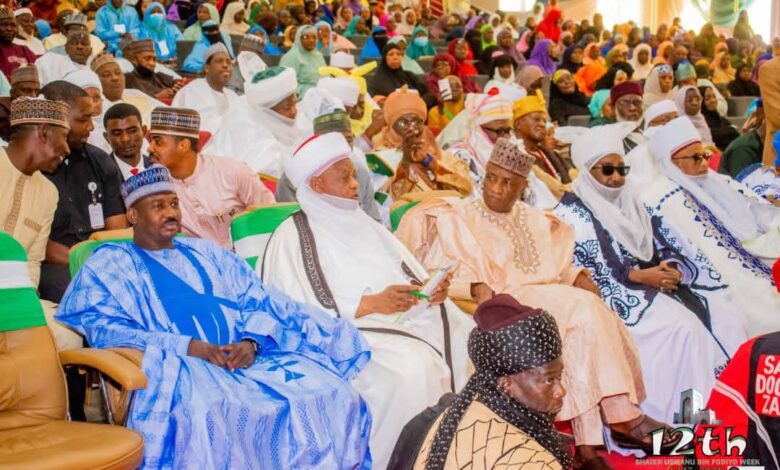
*As DEFENDER picks extracts from previous editions
By BASHIR ADEFAKA
The 12th edition of the annual Sheikh Usman Dan Fodio Week came to a close on Sunday, November 2, 2025, at the International Conference Centre, Kasarawa, Sokoto, marking the end of the 1447 AH/2025 celebrations.
This year’s programme, themed “Reviving Ethical Leadership and Social Harmony: Lessons from the Sokoto Jihad Leaders,” brought together prominent political, traditional, and religious figures from across Nigeria.
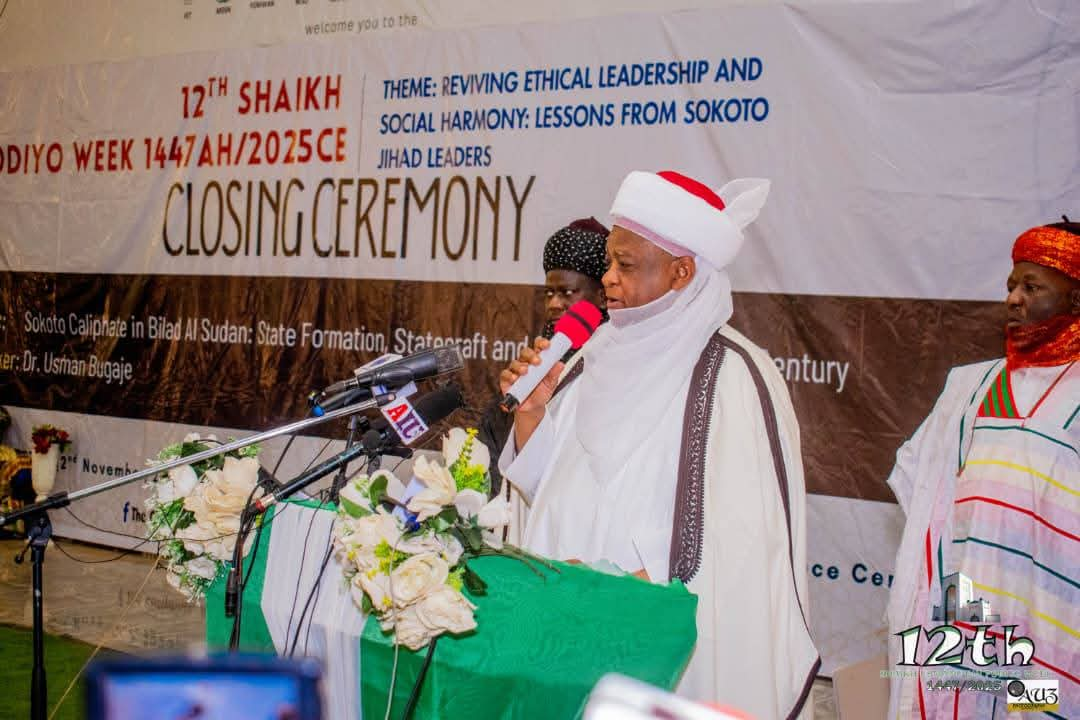
The Governor of Sokoto State, Dr. Ahmed Aliyu, and Governor of Taraba State, Lt. Col. (Rtd.) Agbu Kefas, led the dignitaries in attendance alongside former Deputy Governor of Sokoto State Manir Muhammad Dan Iya, Sardaunan Kware, alongside several first-class traditional rulers, including the Etsu Nupe and Chairman Coordinating Committee of the National Traditional Rulers Council of Nigeria, Alhaji Yahaya Abubakar, CFR, who chaired the occasion; Emir of Zazzau, Amb. Ahmed Nuhu Bamali; Emir of Kaura Namoda, Maj. (Dr.) Sanusi Muhammad Asha; Emir of Keffi and Deputy Chairman Nasarawa State Council of Chiefs, Dr. Shehu Chindo Yahusa III; and Emir of Argungu and Deputy Chairman Kebbi State Emirate Council, Alhaji Muhammad Samaila Mera.
READ ALSO: As 12th Usman Dan Fodio Week reaches its peak
Other royal fathers present included the Emir of Gusau, Alhaji AbduKadir Ibrahim Bello; Emir of Zuru, Alhaji Sanusi Mikailu Sami, also known as Sami Gomo III, who came to the throne in August 2025 following the death of the previous Emir, his uncle, Major General (Rtd) Muhammadu Sani Sami, and the Offor of Umuofor Kingdom, Imo State, Eze AbdulFattah Chimaeze Emetumah III, among others.
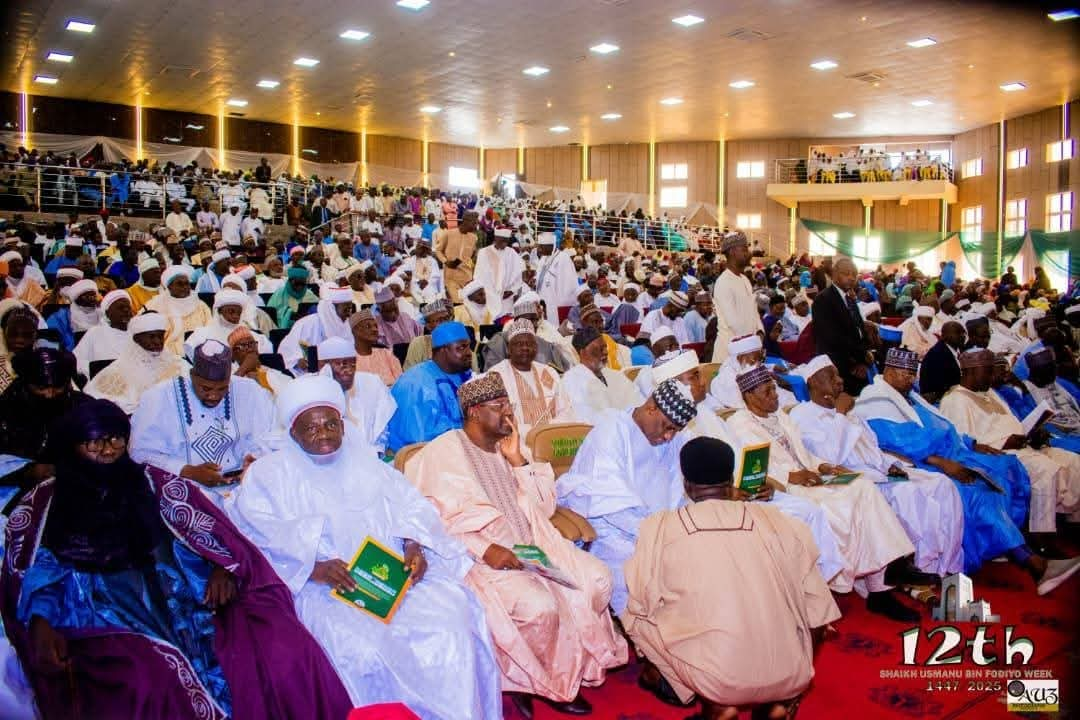
Focusing on leadership and African development in the delivery of his keynote lecture titled “Sokoto Caliphate in Bilad Al-Sudan: State Formation, Statecraft and State Fidelity in 19th Century Africa,” a scholar and former presidential adviser Dr. Usman Bugaje as Chief Guest speaker at the event drew parallels between the historical governance systems of the Sokoto Caliphate and the current challenges facing democracy in Africa against claims it is the better governing system the West has offered the continent.
Viewing the event as a platform for reassessing history and society, The DEFENDER Newspaper reports that the Usman Dan Fodio Week has become a yearly intellectual and spiritual platform for promoting social harmony and ethical leadership, under the guidance of the Sultan of Sokoto and President-General of the Nigerian Supreme Council for Islamic Affairs (NSCIA), His Eminence Alhaji Muhammad Sa’ad Abubakar, CFR, mni, whose military status as retired general is viewed as more like heritage considering his ancestral father, Sheikh Usman Dan Fodio, as also a military general though more notably a teacher and scholar.
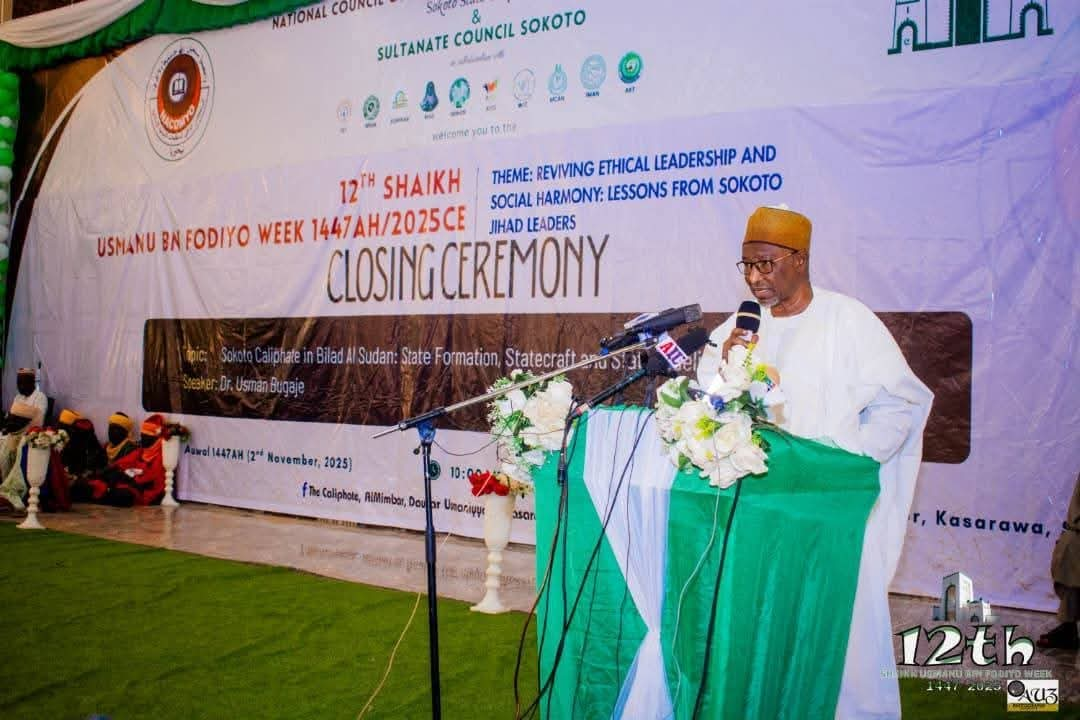
This global online newspaper reports that each edition of the Usman Dan Fodio Week addresses a specific societal challenge while clarifying misconceptions about the Sokoto Caliphate’s historical and administrative legacy before, during, and after the Jihad of Sheikh Usman Dan Fodio.
Re-assessing Africa’s relationship with the West, Dr. Bugaje, in his lead lecture, also examined Africa’s historical ties with Europe, describing them as “three distinct phases” — slavery, colonialism, and the current era of neo-colonial exploitation.
“We don’t seem to understand our relationship with the West,” he said. “Europe’s engagement with Africa has consistently been one of exploitation, and it is time African nations charted a new, self-defined path toward governance and development.”
“Democracy is in crisis globally,” Bugaje said. “Here at home, democracy is not working, and we seem stuck because we appear helpless. The thesis that democracy is better than authoritarianism is collapsing, and the belief that democracy is a necessary factor for development is not holding water either.”
Citing China as an example of a meritocratic system that has achieved economic growth without adopting Western-style democracy, Bugaje called for renewed reflection on African models of governance rooted in competence, ethics, and communal responsibility.
“China’s economy is booming and China is not democratic, China is a meritocracy, a leadership based on competence. We therefore need to reflect more on African State formation and Statecraft,” the guest speaker launched into the lecture.
“We don’t seem to know our relationship with the West. Europe’s relationship with Africa has gone through three distinct phases: first the phase of slavery, the second is the phase of colonialisation and the third the neocolonial relationship of exploitation,” Bugaje said.
Continuing he described colonialism as an enterprise sold to African as a continent and people on the pretext of civilising them “even as Europe itself was never civilized”.
Ex-raying the West, Dr. Bugaje shot a bullet of word that exposed the enlightened listeners to the problem at hand and got them on a better standing to push forward on a platform of true emancipation. By this he said, “As for the USA, it is the only country on earth which went straight from barbarism to decadence without going through civilisation,” and dropped a reference to enable the audience read more from the scholarly work Gore Vidal, one time the greatest American writer alive.
The guest speaker only brought to the podium what he called “synopsis” of the main paper he was meant to deliver, which makes his documented speech a fantastic summary of the much loaded words he delivered. He warned that Nigeria risks being a major threat to development if it continues to grow in population without holistic measure for planning.
By this he could not understand how many of the problems of economy being faced by Nigeria are blamed on population explosion when there are many countries in the world with population doubling or tripping its own and yet are still world giants in terms of power control and economic influence.
“Appreciation of the future – a world in transition – from a unipolar to a multipolar world – demographic shifts; Africa the only continent to double its population in 2050. Mean age for Africa 19, the youngest on the globe. [Nigeria in 2050 will be well over 400m and the 3rd largest in population after China] economic shifts; water crisis – Africa is the continent of the future – governance structure that gives us independence to negotiate better deals with the globe.
“This discussion is not just about the past, it is about the future. Without a last you cannot have a future. The present, over time, becomes the past. And the future with time becomes the present. This is life of planet earth, as we know it,” he said.
Bugaje then turned towards the Ummah and gave them his own charge about the need to rise up and stand tall ahead of the challenges that future holds in the emergent paradigm shift globally. “Muslims are constantly enjoined and spurred to engage with and prepare for the future – al-akhira is the future – specifically to use their senses when planning for the future. (Al-Mulk, 67:22,23) To be sure, the choice of this topic is infirmed by the urgent need to decolonise our minds,” he spoke in parable but with full waves of clarity.
Place of Dan Fodio
Explaining the place of Sheikh Usman Dan Fodio in the 19th Century Africa, Dr. Bugaje noted that, “The Sokoto Caliphate enterprise started with seemingly inconsequential concern of an individual scholar whose conscience refused to settle down with the overwhelming ignorance and political tyranny in his society. If he has cared about his comfort, like many of us today would, and kept quiet, tip-toeing around the problems of his society, as many elite today do, we would not have had the benefits of an intellectual movement which changed the future of a critical part of this continent.
“Luckily his conscience did not allow him. He went out teaching the wider society, not from an ivory tower, as many scholars of his time did, but he went I to the field giving sermons, opening schools, writing the books, even as he himself continued learning from scholars of higher learning. As he raised the social consciousness of his society and as he educated and mobilise the women, he sparked a new conversation in society, which started creating a new narrative and new vision of society.
“It is this new narrative and new vision of society which spread far and wide and triggered a momentum for change which became unstoppable. Because the leaders of this movement were scholars and because the motive was sublime and because the determination was transcendental, the movement was unassuming, unrelenting and unbroken.
“It delivered on its mission, it attained its ultimate objectives and realised its vision. Its scholars captured every moment of this struggle, documenting it and preserving it in ways that make it difficult to obliterate. Abdullahi ‘s Ida’s al-Nusukh, and tazyin al-Waraqaat, Muhammad Bello In FAQ al Maysur, Nana As Mai’s Prose and poems have captured for us enough to reconstruct, with remarkable accuracy, the history of the Caliphate,” Bugaje said.
On State formation, he explained Usman Dan Fodio’s intervention in a gradual process of social change which, according to the multi-talented Nigerian scholar, he did by raising social consciousness and creating a new conversation that naturally created a movement called simply as the Jama’a (of Shehu). “This Jama’a is made up of almost all the ethnic groups in the Theater of Da’awah. It went through four distinct phrases” namely;
“The phase of preaching, teaching and Da’awah 1774-1793, The phase of grooming and mentoring and nurturing 1793-1804, The phase of hijra and Jihad 1804-1808, and, The post Jihad period of State building and consolidation 1804-1817.”
The Chief Guest lecturer then placed this Usman Dan Fodio module before his audience and urged them to compare with the formation of the United States of America, a country he said was built on the extermination of the Red-Indians and the cruel slave labour. “Compare this also with formation of the colonial States, Nigeria being one of them,” and he talked of the inherent anomalies attached to the Western way of State formation.
On Statecraft, Dr. Usman Bugaje highlighted Shehu (Usman Dan Fodio’s) administrative structure listing defence and security, admin structures, Justice, law and order, educational policy, political economy, medical and social psychology, foreign policy, social policy and, indeed, leadership and succession planning in the way and manner of his established Statecraft that has remained indelible in the consciousness of the world over 221 years after.
The speaker also touched on State Fidelity with components of discussions, debate and scrutiny; reflections; good governance and checks and balances.
He then concluded on a note that appeared to provide an agelong misconception about the capture of Hausa Land.
“Here then is a polity created out of the decadence of the Hausa States. A polity which re-invented the Hausa States, by bringing an end to the internecine warfare which raged on for about two centuries, by restoring good governance and spreading learning, especially among women, who were victims of many of the oppressive practices. It gave new life to the communities and sparked changes across the length and breath of the Bilad al-Sudan, creating a massive and unprecedented social integration in the vast region,” he said.
He went on to say that, “This has, inadvertently, prepared the integration of Africa needed in 2050, when the continuous biked to play a global role”, and positioned the Sokoto Caliphate for the much needed duty of bearing the burnt of the new era that will emerge.
“The Sokoto Caliphate, which having benefited from the scholarship of Borno before it, today stands as an icon of good governance, a model for genuine development, a case study for social integration, a prototype for religious accommodation and co-existence and a paradigm for an independent African polity that play a role at a global level, away from the humiliating subservience induced and constructed by the European colonial enterprise.”
The 12th edition this year, as it is programmed to be, coincides with the 19th anniversary of His Eminence Alhaji Muhammad Sa’ad Abubakar, CFR, mni, on his Usmaniyyah Throne as the 20th Sultan of Sokoto Caliphate.
The event for the year concluded on Sunday November 2, 2025 with renewed calls for ethical leadership, social cohesion, and a reorientation of governance values across Nigeria and the African continent.
11th edition
Last year 1446/2024, topic of the lecture for all-important Usman Dan Fodio Week titled, “Unity As A panacea To Insecurity And Poverty: Lessons From The Sokoto Jihad Leaders”, was delivered by immediate past Minister of Communications and Digital Economy, Professor Isa Ali Ibrahim Pantami, as the Chief Guest Lecturer.
10th edition
The DEFENDER recalls that 10th edition of the Week held in 1445AH/2023 ended with showers of prizes on Etsu Nupe, His Royal Highness Alhaji Yahaya Abubakar, Registrar of Joint Admissions and Matriculation (JAMB), Professor Is-haq Oloyede, former Head of Service of the Federation, Alhaji Yayale Ahmed and three others.
The grand finale held on Thursday November 2, 2023, a fixed date for the annual event coincided with 17th Anniversary of His Eminence Alhaji Muhammad Sa’ad Abubakar on the Usmaniyyah Throne of the Sultan of Sokoto.
This globalised online newspaper reports that grand finale of the 10th edition was held with His Royal Highness Ambassador Ahmad Nuhu Bamalli, the Emir of Zazzau, as Chairman of the occasion.
The event, which featured presentation of awards to winners of school quiz competitions earlier conducted during activities in the build-up to the main day, saw very many prominent personalities in attendance including Governors of states of the old Sokoto province namely Dr Ahmed Aliyu (Sokoto), Alhaji Nasir Idris (Kebbi) and Alhaji Dauda Lawal (Zamfara) who were either physically present or were ably represented at the event.
The Etsu Nupe and Chairman of the Niger State Emirate Council, Alhaji Yahaya Abubakar, and the Emir of Kaura Namoda, Alhaji Sanusi Muhammad Asha, were conspicuously noticed among traditional rulers who graced the occasion as an indication of respect to the ancestral headquarters that Sokoto Caliphate religiously and traditionally represents.
Renowned international Islamic scholar, Dr. Zakir Naik, was chief guest speaker at this year’s event where he spoke on the topic, “Al Qur’an The Global Necessity.”
9th edition
Year before, that is 1444/2022, it was America-born Dr. Abdullah Hakim Quick, who flew in from his base in Ontario, Canada, to deliver the Ninth Sheikh Usman Dan Fodio Week grand finale lecture. Asides Dr. Quick, a renowned scholar and PhD holder in ‘Aspects of Islamic Social Intellectual History in 19th Century Hausa Land: Uthman Ibn Fodio’, other scholars who featured in the success of the 1444/2022 edition of the Usman Dan Fodio Week included Professor Mohammad Taofeek Ibrahim, a former Vice Chancellor of Al-Hikmah University, Ilorin, Professor S. O. Raibiu of the Faculty of Law, Usmanu Dan Fodio University, Sokoto, and Professor Chika Umar Aliyu of the Department of Economics Usman Dan Fodio University Sokoto and Dr. Salisu Bakori of the Centre for Islamic Propagation, Katsina State and many more.


